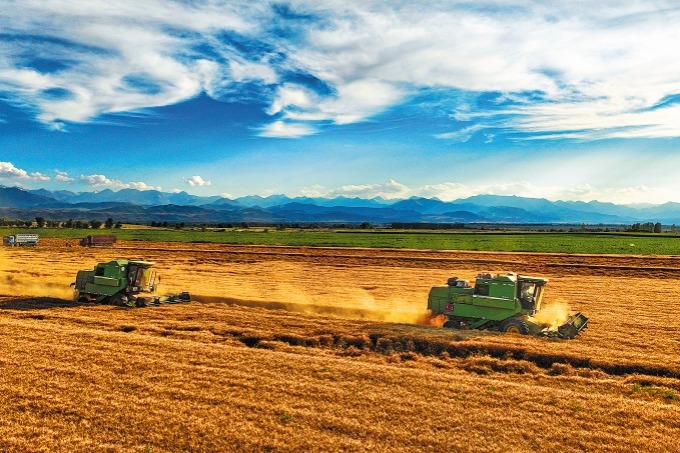Booster shots to be on health agenda after herd immunity
Achieving wide coverage the priority, then third jabs in high-risk sectors


COVID-19 booster shots can be rolled out to high-risk groups in China after enough people are vaccinated to establish herd immunity, domestic vaccine developers said amid mounting evidence that an additional dose can prompt a spike in immune responses.
Zhang Yuntao, vice-president of China National Biotech Group, a subsidiary of State-owned Sinopharm, said the focus at present remains on immunizing all people eligible for vaccines and building herd protection against the virus.
"In the long run, booster shots can be rolled out in China and the priority will include people above 60 years old, as well as workers in the sectors of civil aviation, catering, delivering and other industries that involve employees moving the most frequently across society," he said this week.
The prospect of delivering extra doses to fully vaccinated people has gained urgency recently amid concerns over waning vaccine protection over time and surging infections worldwide driven by the highly contagious Delta variant.
For the company's two-dose inactivated vaccines, Zhang said antibody levels appear to decline about six months after vaccination, the same as vaccines based on other technologies around the globe.
However, injecting an additional shot at least six months after initial inoculations can trigger a large increase in antibody amounts-as high as five to 10 times the previous level, Zhang said, citing preliminary results from an ongoing study in the United Arab Emirates.
An early stage human trial conducted in Henan province also showed that giving a third dose 56 days after the second dose to people aged 3 and above is safe and capable of inducing stronger immune responses compared to people receiving only two doses, Zhang said.
He added that giving booster shots can also enhance protection against the Delta variant because inactivated vaccines have proved effective at tackling emerging variants.
But research into new versions of vaccines designed specifically for dangerous variants is underway. The company adopted the approach of replacing the old strain with the Delta variant and with the Beta variant that was first detected in South Africa and has been linked to higher risk of severe illness and death.
He said the company has completed the research and development phase and is communicating with drug regulators on the next step.
CanSino Biologics, which developed a one-dose vaccine jointly with the Academy of Military Medical Sciences, has found in clinical trials that a booster shot given to vaccinated people six months after initial inoculation can boost antibody levels by eight times.
Zhu Tao, the company's chief scientist, said during an online event this month that some studies show delivering its adenovirus-vectored dose to people vaccinated fully with inactivated vaccines can elicit even more potent protection than people boosted with the same type of vaccine.
Sinovac, another Chinese company, said during a consultation session organized by the World Health Organization this month that injecting a third dose on top of its two-dose regime can lead to a significant increase in overall antibody levels and more comprehensive types of them to fight against the virus.
The WHO said in a statement released on Aug 10 that implementing booster shots risks exacerbating inequalities seen in vaccine distribution worldwide and further straining limited supplies.
It added that there is not enough evidence to support widespread use of booster shots at the moment, and it will keep monitoring the situation and gathering data for further evaluation.
China had administered more than 1.97 billion doses nationwide as of Tuesday, according to the National Health Commission. Health experts have predicted that vaccination coverage will likely reach 80 percent, a critical marker for herd immunity, by the end of this year.
- Researchers design self-cleaning electrode for stable synthesis of metal peroxides
- Who's who in the Shenzhou XIX crew
- China's leading science institution launches international program on synthetic cells
- Foreign businesses welcome to deepen cooperation with China: vice-premier
- Hong Kong rolls out policy statement, moves to nurture fintech
- Shenzhou XIX mission crew members meet the press





































